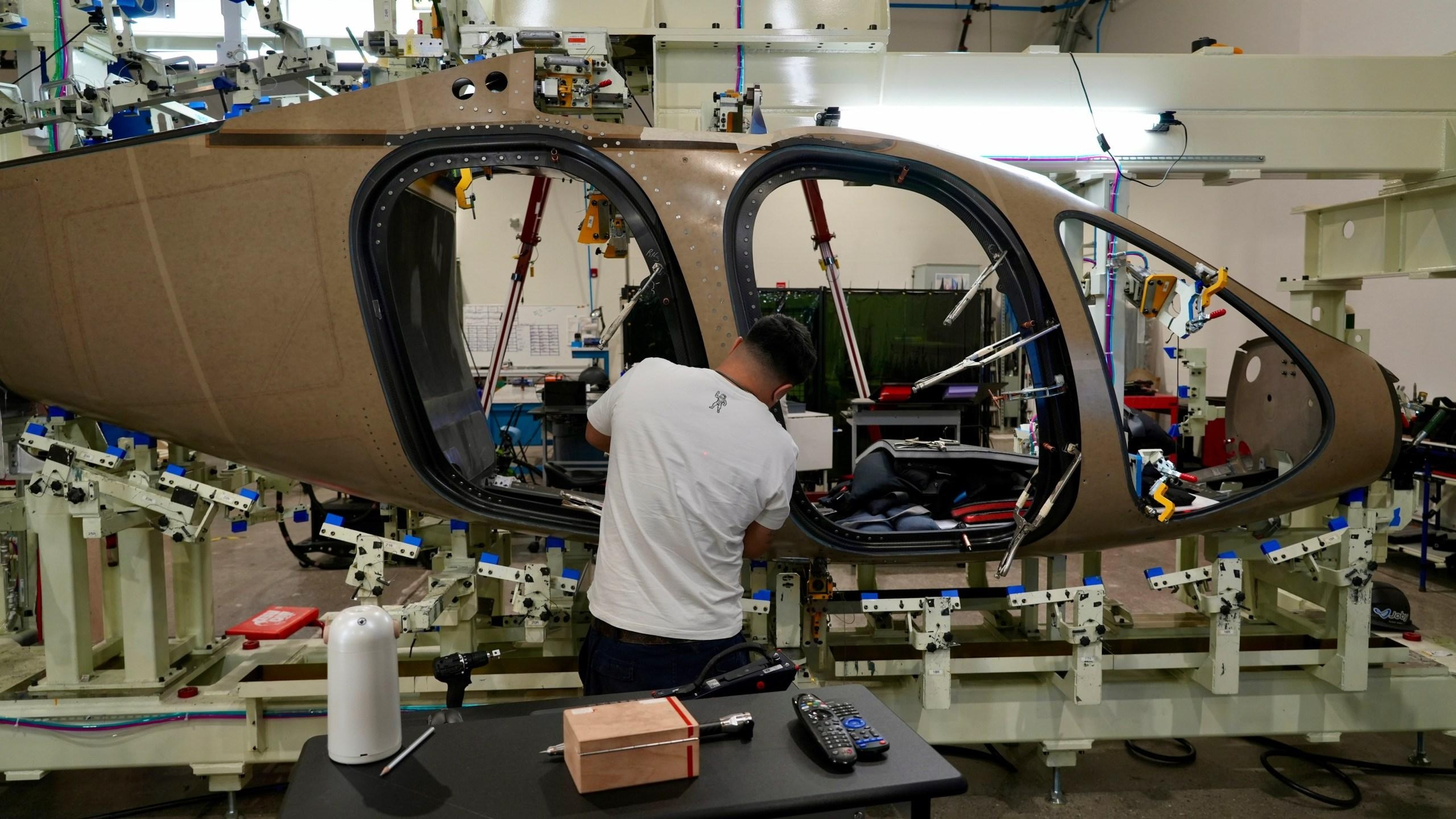AeroGenie — Ваш интеллектуальный второй пилот.
В тренде
Categories
Flying Taxi Stocks Rise Following Trump Order: Comparing Joby and Archer

Flying Taxi Stocks Surge Following Trump Executive Order
Shares of leading flying taxi manufacturers experienced a notable increase this month after President Trump signed an executive order aimed at expediting the certification process for electric vertical take-off and landing aircraft (eVTOLs). The directive seeks to position the United States at the forefront of advanced air mobility (AAM) technology by providing companies such as Joby Aviation (NYSE: JOBY) and Archer Aviation (NYSE: ACHR) with a more streamlined path to market entry.
The executive order mandates the Federal Aviation Administration (FAA) to accelerate approvals and initiate pilot programs for practical applications, including cargo transport and emergency medical services. Additionally, it calls for the establishment of a global certification framework in collaboration with Canada, the United Kingdom, Australia, and New Zealand. This international cooperation is expected to bolster the reputation and competitive standing of U.S.-based eVTOL manufacturers.
Archer and Joby: Strategic Positions and Financial Profiles
Both Archer and Joby have secured strategic partnerships with the U.S. Air Force through the Agility Prime program, which supports the development and operational testing of eVTOL technology. Joby holds military contracts valued at $131 million, while Archer has secured commitments totaling up to $142 million. These collaborations not only provide early revenue streams but also serve as critical validation of their technologies in real-world operational environments. Another notable player, Beta Technologies, has completed thousands of military takeoffs and landings and obtained substantial defense funding, underscoring the growing defense interest in eVTOL platforms.
Although eVTOL aircraft are commonly associated with urban air taxi services, initial deployments are expected to focus on sectors such as defense, healthcare, and cargo transport. These areas prioritize reliability and operational readiness over cost efficiency, aligning well with the capabilities of early-stage eVTOL models.
Archer Aviation recently raised $850 million in new capital, significantly enhancing its financial resources. Despite this infusion, Archer’s stock price declined following the executive order announcement. Conversely, Joby Aviation’s shares appreciated, reflecting investor confidence in its market potential and strategic positioning.
Financially, Archer remains in the early stages of development, with limited revenue generation and ongoing losses. Joby has reported intermittent revenue increases and fluctuating losses, largely attributable to defense contracts and pilot program activities. Both companies have advanced substantially in the FAA certification process and have conducted numerous test flights, positioning them ahead of less-capitalized or newer entrants in the sector.
Market Expansion and Future Prospects
The European eVTOL market continues to face regulatory and operational hurdles, which may create opportunities for U.S. firms like Archer and Joby to expand their footprint and potentially dominate the European advanced air mobility landscape.
As the industry moves from conceptual development toward commercial execution, investors remain attentive to which companies will be the first to achieve significant revenue milestones. With enhanced federal support, substantial funding, and established military partnerships, Joby and Archer are poised to lead the next phase of advanced air mobility both domestically and internationally.

Capital A Completes Sale of Aviation Business to AirAsia X

Four Gateway Towns to Lake Clark National Park

PRM Assist Secures €500,000 in Funding

InterGlobe Aviation Shares Rise 4.3% Following January Portfolio Rebalancing

Key Market Segments Shaping Airline Route Profitability Software

Locatory.com Gains Traction Among Aviation MROs and Suppliers

JetBlue Flight Makes Emergency Landing Following Engine Failure

58 Pilots Graduate from Ethiopian University

The Engine Behind Boeing’s Latest Widebody Aircraft

UBTech Shares Rise After Airbus Orders Humanoid Robots
